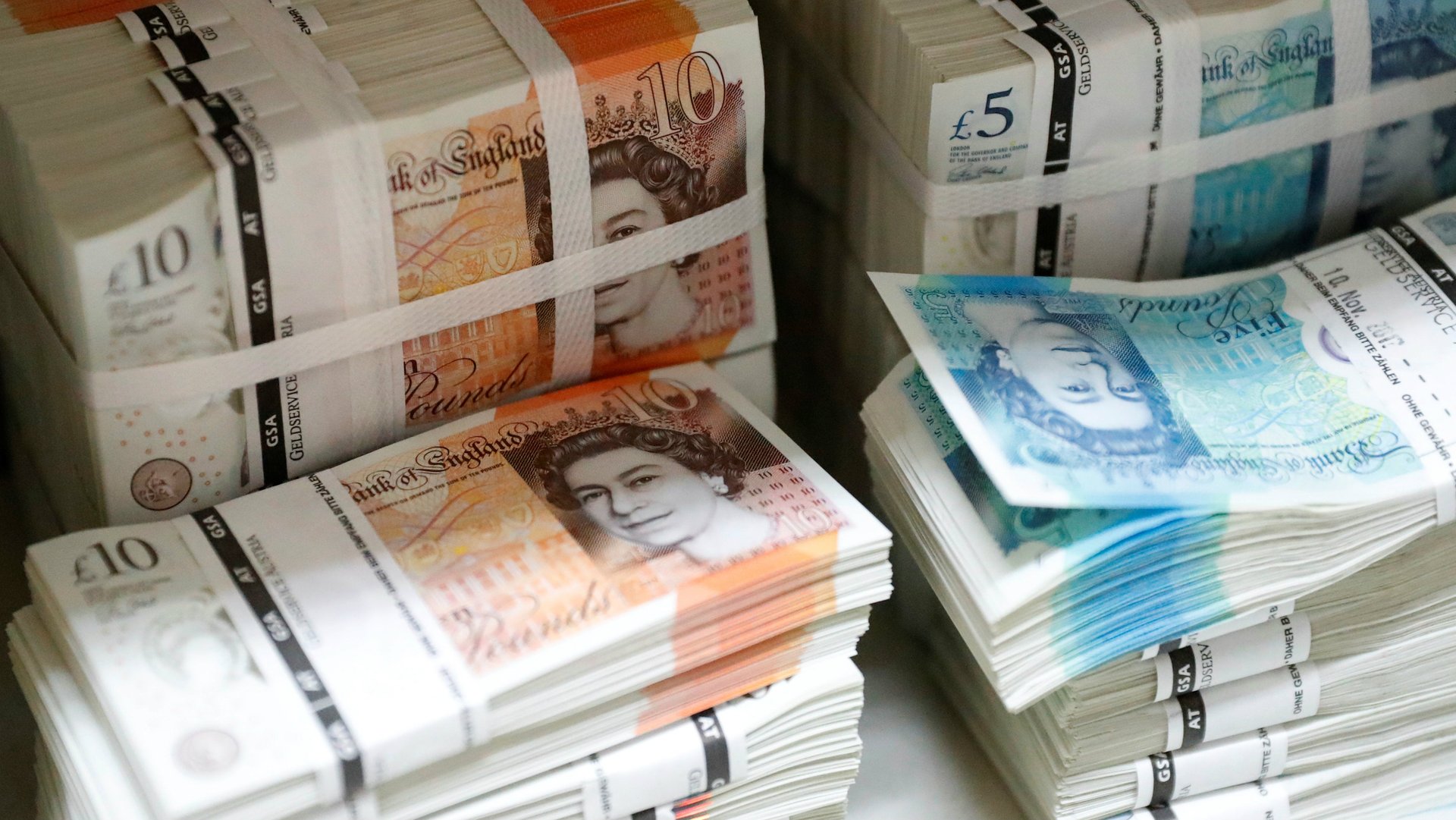A warning from Britain about going cashless too quickly
Brits are increasingly going cashless: it’s easier to pay for everyday items by tapping a card (or smartphone) than by sorting through a wad of notes (or a pocketful of heavy coins). But as digital payments catch on around the world, there’s a growing risk that some people will be left behind.


Brits are increasingly going cashless: it’s easier to pay for everyday items by tapping a card (or smartphone) than by sorting through a wad of notes (or a pocketful of heavy coins). But as digital payments catch on around the world, there’s a growing risk that some people will be left behind.
The UK’s Access to Cash Review sounded the alarm today, detailing some of the groups in danger. (The review was funded by the Link ATM network but says it is independent from the cash-handling service.) For now, cash is “an economic necessity” for around 25 million people in the UK, according to the report. Nearly half of people surveyed said a cashless society would be problematic for them, and 14% of that subset said they wouldn’t be able to cope at all.
Those at risk include the elderly, people in rural areas, as well as poor people with limited access to formal financial services. There are also concerns about privacy—digital payments can be more traceable—and some charities and homeless people rely on cash donations. Meanwhile, research suggests that people who use mobile apps and fintech products end up making worse financial decisions.
Even as the number of bank branches and ATMs dwindles (and the decline in cash withdrawals accelerates), there are instances when physical money remains popular. Notes and coins are used for around three-quarters of convenience store purchases and a similar share of charity donations, according to the review, which was chaired by Natalie Ceeney, a former chief executive of the UK’s Financial Ombudsman Service. Nearly all money given to homeless people and street performers is physical cash.
The UK report is timely. Last year, electronic debit card transactions in the UK outnumbered those with physical money for the first time. Brits are further ahead than their counterparts in many other countries, but the shift is gradually happening around much of the world. Investors are betting big on the move to digital transactions, and there are clear upsides to getting rid of cash, which is vulnerable to burglary and sustains the underground criminal economy.
But just because cash is used less often for daily transactions doesn’t mean the Bank of England is printing less of it. The amount of UK paper money in circulation has recently plateaued, but it has more than doubled since the turn of the century. Some people hoard paper cash because they distrust banks or prefer for their payments to remain private. Tax evasion also probably accounts for a large share. The underground economy may be as large as 11% of UK GDP, or £223 billion ($282 billion), according to estimates cited in the report.
As cash use dwindles, it’s getting more expensive for businesses. Handling costs are going up, and as bank branches close it takes more time to travel to them. At the same time, smaller firms say payment terminals like iZettle (purchased by PayPal this year) make digital payments more convenient, the report said, and are stepping away from cash to make theft less likely.
The are plenty of reasons why the shift to electronic payments is a good thing. But as with any major change in technology—paper money has been around for a thousand years or so—there are downsides. Addressing those risks is the only way to make sure that nobody gets left behind and that society as a whole is better off.